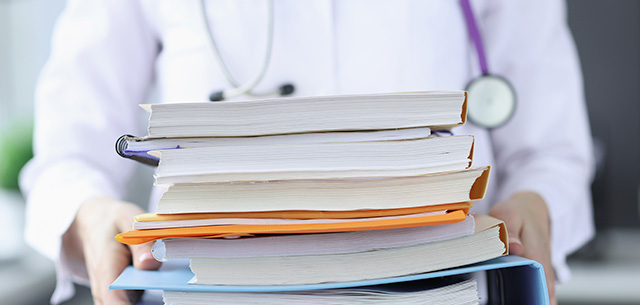Translating medical documents is a multidimensional task that goes beyond mere linguistic translation. It encompasses a deep understanding of medicine, ethics, law, culture, and technology. The responsibility on medical translators is immense, as their work directly impacts patient care and health outcomes. The future of medical translation will likely see increased specialization, technological integration, and continued emphasis on quality and accuracy to meet the evolving needs of global health services.
Specialized Language Knowledge:
One of the most significant challenges in translating medical documents is the need for specialized language knowledge. Medical language is filled with jargon, technical terms, and abbreviations that can significantly vary between languages and cultures. For example, medical acronyms and abbreviations, common in health service documentation, can have different meanings in different languages, and sometimes, there may not be a direct equivalent in the target language. This situation requires translators who are not only linguistically proficient but also deeply familiar with medical terminology in both the source and target languages.
Cultural Sensitivity and Contextual Accuracy:
Cultural sensitivity and contextual accuracy present another significant challenge. Certain medical terms or concepts may be culture-specific, and their accurate translation requires an understanding of the cultural context in both the source and target languages. For instance, a direct translation of a common health procedure or term in one culture may be misunderstood or even offensive in another culture. This makes it vital for translators to deeply understand the cultural nuances related to health and medicine in different regions.
Regulatory Compliance:
The medical field is heavily regulated, and often medical documents need to comply with strict regulatory standards set by various national and international bodies, such as the FDA in the United States or the EMA in Europe. Compliance with these standards is critical, as non-compliance can lead to legal implications and compromise patient safety. Translators need to be aware of these regulations and ensure that the translated documents comply with all required legal and ethical standards.
High Error Rate:
The rate of errors in translating medical documents is remarkably high. Even minor mistakes can lead to misdiagnosis, incorrect treatments, and even life-threatening situations. For example, incorrect translation of medication dosages or patient history can have severe consequences. Therefore, accuracy in translating medical documents is not just a matter of linguistic proficiency but a matter of patient safety.
Technological Advancement and Machine Translation:
While technological advancements, such as translation memory systems, can aid in translating repetitive expressions and maintaining consistency across documents, complete reliance on machine translation is risky in the medical field. Machine translations may not accurately translate the nuances of medical terminology and can lead to errors. Human expertise is crucial to ensure the accuracy and reliability of translated medical documents.
Complexity of Medical Terminology and Concepts:
Medical documents contain highly specialized language including clinical terms, pharmaceutical jargon, and health procedures that can be complex to translate. The translator must understand the complexity of medical terminology, often involving Latin and Greek roots, which can vary significantly between languages. For example, a term used in one country’s medical system may not have a direct equivalent in another country, requiring the translator to have a deep understanding of both health systems.
Variations in Medical Systems and Practices:
Different countries and cultures have varying medical systems and methods. A treatment approach or medical device used in one country might be unknown or used differently in another country. This variation requires the translator not only to translate the language but also to adapt the content so that it is understandable and meets the expectations of the target audience.
Ethical Considerations in Medical Translation:
Medical translation often involves documents related to clinical trials, informed consent forms, and patient information leaflets. These documents have ethical implications, and the translator must ensure that the translation conveys the same meaning and intent as the original, especially when it comes to consent and understanding of medical procedures.
Updating and Amending Medical Documents:
Medical knowledge is constantly evolving, with new research, treatments, and medical technology emerging regularly. Translated medical documents often require updates and amendments to reflect these changes, posing an ongoing challenge for translators.
Confidentiality and Data Protection:
Medical documents contain sensitive personal information. Translators must adhere to strict confidentiality and data protection laws, such as HIPAA in the United States, to protect patient privacy. This adds a layer of responsibility and requires awareness of legal requirements for information protection in different jurisdictions.
Translation for Diverse Patient Populations:
In multicultural societies, medical documents must address a diverse patient population with varying levels of language proficiency and cultural backgrounds. This requires translations that are not only linguistically accurate but also culturally appropriate and sensitive to the needs of different ethnic groups.
Use of Translation Tools and Software:
While translation tools and software can assist in the process, overreliance on them can be detrimental. These tools may not always understand the context or the subtleties of medical terminology. The human element in translation is irreplaceable, especially in checking and ensuring the accuracy of translations made by software.
Training and Certification of Medical Translators:
Given the complexity and risks involved, medical translators often require specialized training and certification. They need to stay updated on the latest developments in medical science












